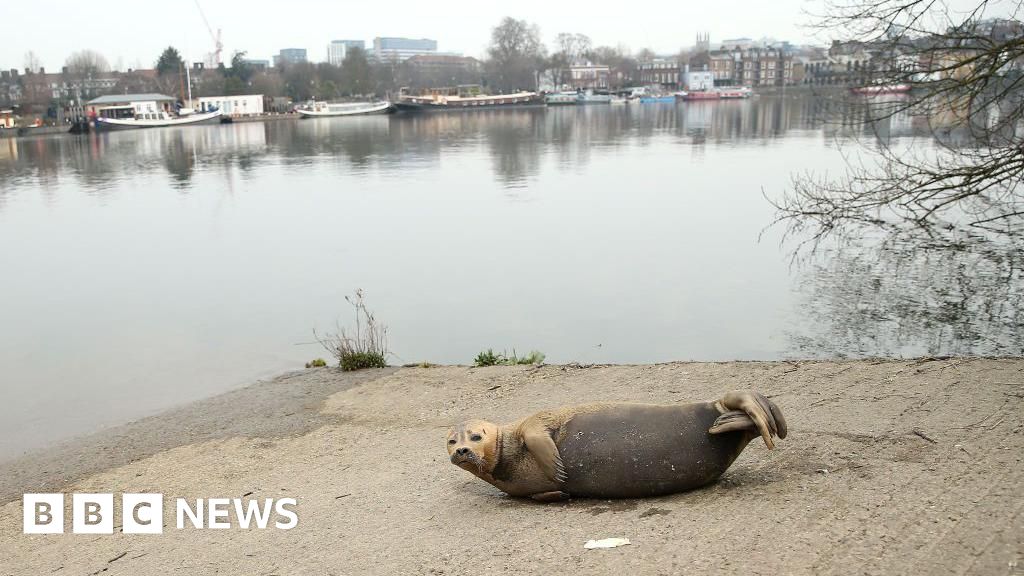Football
Thames: Thousands of seals making the estuary their home

 Getty
GettyAlmost 600 harbour seals and 3,000 grey seals now live in the Thames Estuary, the Zoological Society of London (ZSL), which runs London Zoo, has revealed.
Taking to the air and sea, ZSL conducted surveys by observing the seals from boats along the estuary and from RAF training flights above the coastline between Suffolk and Kent.
ZSL’s Hannah McCormick, who led the survey, said: “During the 2024 seal survey, we counted 431 harbour seals and 714 grey seals laying out on sandbanks along the Thames.
“By combining these with the number of seals estimated to stay in the water during the counts, we can estimate that there are a total of 599 harbour seals and 2,988 grey seals.”
 ZSL
ZSL“Seals are playful but shy creatures, so using a long-range lens to take photos from a distance allows us to maximise our counting accuracy while also minimising any disturbance – helping us build the strongest possible understanding of how these native species are faring in the Thames, and highlighting the importance of protecting this ecosystem.”
The count was completed over several days in August during the moulting season for the harbour seals.
Over the course of those weeks, the seals would have spent much of their day basking on the estuary’s sandbanks, making it easier for the survey team to spot them.
The Thames is home to both harbour and grey seals, although harbour seals are the only one of the two to breed in the area.
 ZSL
ZSLThis year’s survey was consistent with results from the last few surveys, with 692 harbour seals and 3,134 grey seals having been estimated in 2021.
Ms McCormick explained: “We’ve seen UK seals make an incredible recovery from the early 2000s, when high rates of distemper virus led to steep declines in numbers.
“Results since 2018 suggest there has been a decline in harbour seals, which has also been seen in other harbour seal colonies in the east of England.”
 Getty
GettyShe added: “While the causes of these declines remain unknown, experts are investigating potential factors and by keeping a close eye on these changes.
“We will continue to build our knowledge of seals in the Thames while contributing to long-term regional and national data on seals.”
A ZSL-led report previously revealed that although the Thames was declared “biologically dead” in1957, conservation efforts had led to it once again becoming home to a wide variety of British wildlife including seals, seahorses and critically endangered eels.










